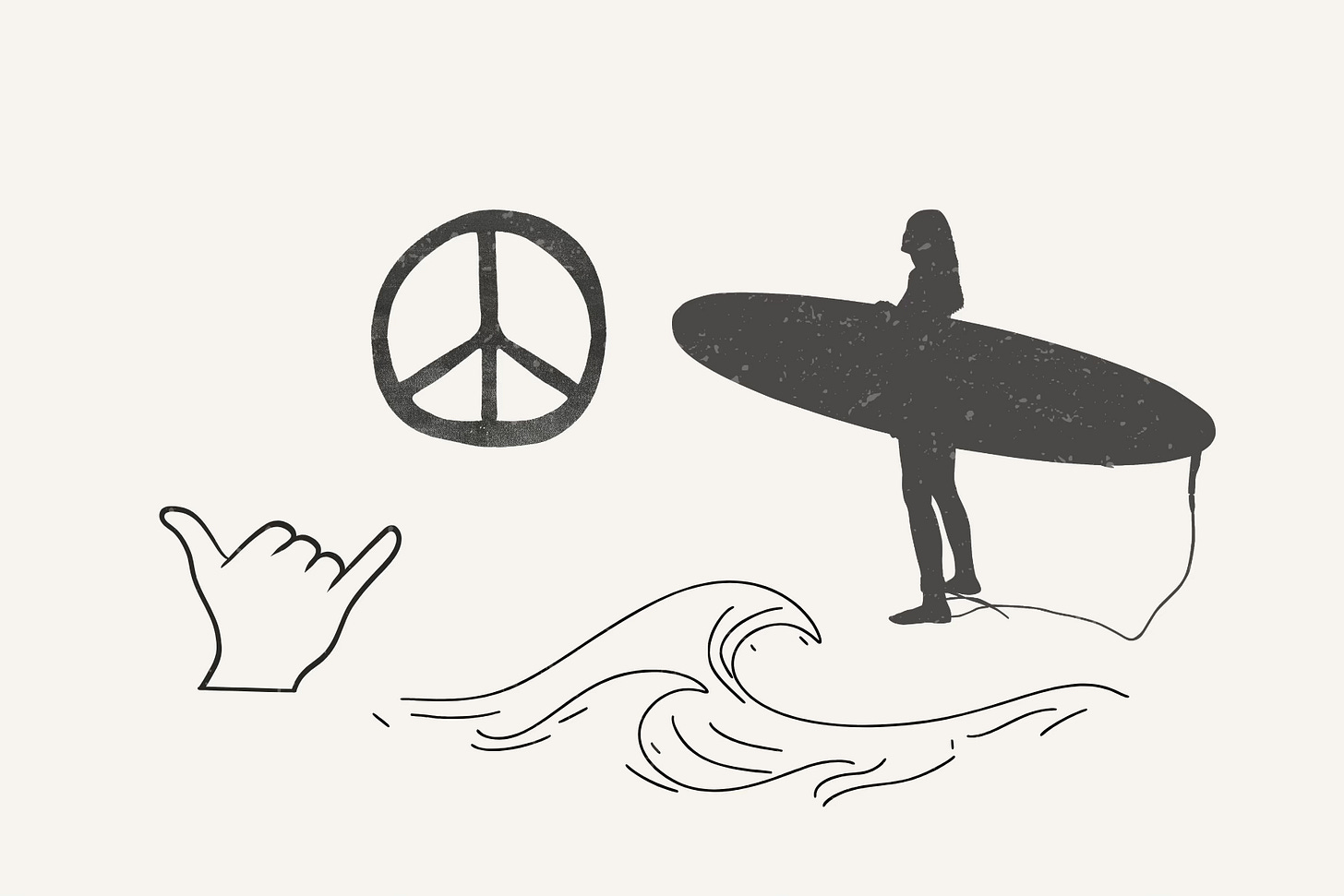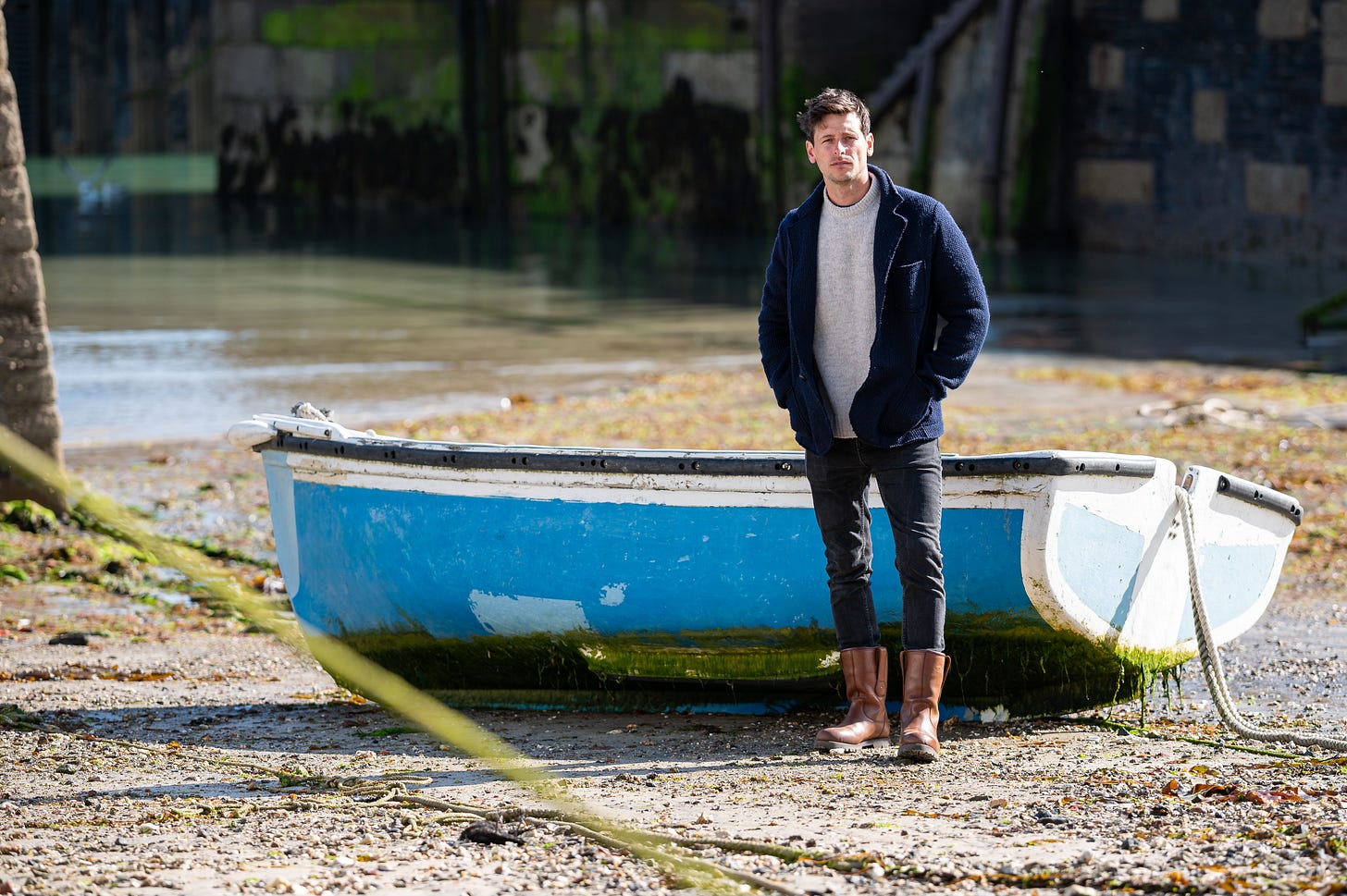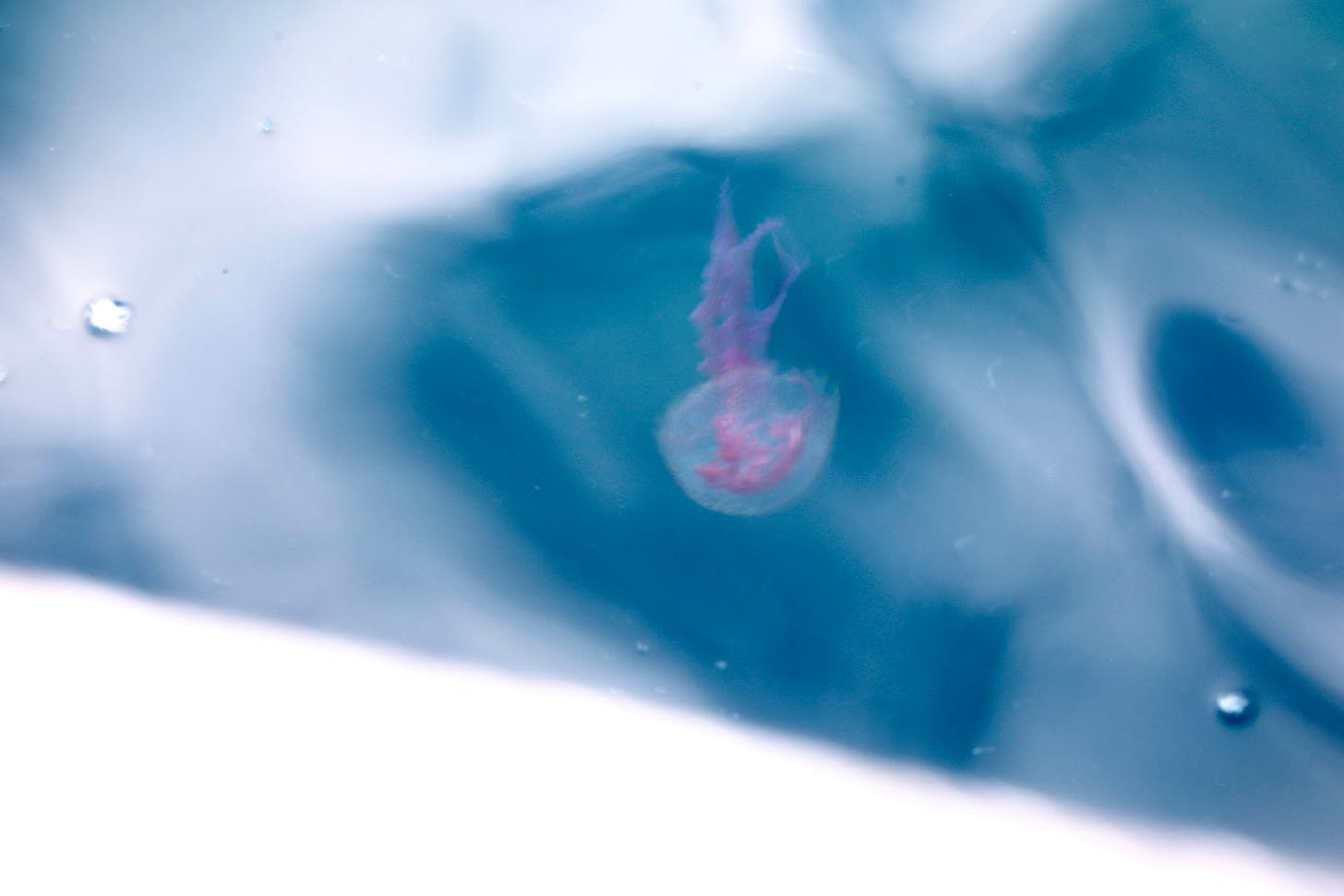Cornwall Life: A Breath of Fresh Air – The Regeneration of Newquay
The Quiet Magic of Coastal Life - Why Newquay Mornings Feel Like Meditation
“Just like with any classical forms of meditation, it takes a while to cut the noise. I can say with a spring in my step that Newquay is my meditation.”
It’s 6:35 am here in Newquay, and the ocean is already awake. From my window overlooking Towan Beach, I watch a few keen surfers glide across the clean green waves as the sun rises over the harbour illuminating the small gaggle of fishing boats. It’s just a minute walk from home to the sand, feeling the cool grains between my toes– I very rarely have shoes on. This is my daily ritual—a moment of peace before the world stirs. The dogs usually have the harbour to themselves in the morning. Fresh crab claws, the occasional rotting cormorant laying tangled in sand at the shore, and often small dog fish too– cast from the unwanted hands of the fisherman. It’s calm, the sea laps like a lullaby, and the sound of the few yacht masts clang in the breeze.
For many, Newquay was once synonymous with stag parties, grubby streets, and a transient community of mostly tourists. But today, it tells a different story, or at least it’s beginning to. A new wave of residents, particularly those aged 30 to 40, are trading the smog and stress of London for the serenity of Cornwall. They’re not just visiting; they’re planting roots.
The Pandemic’s Push
The COVID-19 pandemic didn’t just disrupt routines—it fundamentally changed how and where we live and work. One of the most profound changes was the sudden, widespread shift to remote working. Office life, with its structured schedules and long commutes, quickly gave way to more flexible arrangements. For many, this opened the door to questions they hadn’t seriously considered before: Do I really need to live near the office? What kind of life do I actually want? With the freedom to work from virtually anywhere, priorities started to shift. Living near a beach or in the countryside went from being a far-off fantasy to a practical, achievable reality.
Cornwall, with its dramatic coastline, open landscapes, and sense of community, stood out as an attractive alternative to urban life. As city dwellers looked for more space, cleaner air, and a deeper connection to nature, Cornwall’s appeal skyrocketed. During the height of the pandemic, property searches in Cornwall even outpaced those in London—a clear signal that people were ready for something different. The draw wasn’t just the scenery; it was the lifestyle. Slower, simpler, and more grounded– the feet on the sand kind of grounded. For many, Cornwall represented a chance to reset, to build a life that felt more intentional, less rushed. The pandemic forced change, but it also revealed opportunity—and for thousands, that opportunity looked a lot like the cliffs and coves of the Cornish coast. I was already here, feeling rather smug.
A New Kind of Resident
The influx of new residents has brought a new community and energy to Newquay. These individuals aren’t just remote workers; they’re entrepreneurs, artists, and innovators. It’s not a hippy town, but it’s one that would rather be named so, than be tarnished with the London brush. We (those like me) are opening cafes, launching startups, and integrating into the community fabric. Their presence is revitalising the local economy and fostering a culture of creativity and collaboration. From pottery clubs, whatsapp groups of hundreds of hardy dawn sea dippers, and a good chunk of digitally creative types too.
The Rise of the Sauna Society
One unexpected yet delightful trend accompanying Newquay’s evolution is the emergence of the “sauna society.” Traditional British socialising often revolved around pubs, but a shift is occurring. Now, my friends and I gather in the sauna or on our boards at dawn– embracing wellness and connection, not over pints, but peace.
Establishments like the Saunassa Nordic Spa in the Feel Good Building offer communal spaces where people can unwind, reflect, and bond. These saunas, often a short dash to the sea (natures cold plunge), provide a unique blend of relaxation and community engagement. They’re becoming the new social hubs, fostering deeper connections in a serene setting. This is of course happening elsewhere in the country too, but here, it feels legit, authentic.
The History of a Working Town
The name of the town refers to the 15th-century “new quay,” constructed to service the expanding pilchard trade. The settlement was previously “Towan Blystra” (literally, “blown sand dunes”), a small, disperse village that existed for hundreds of years. The quay marked the turning point. Fishing vessels could bring home bigger catches, and it provided the basis for the thriving fishing port that Newquay was to become. The pilchard - an oily, small fish found in great quantities off the coast of Cornwall - were salted, barrelled, and shipped off to Mediterranean countries, especially Italy. The pilchard trade provided Newquay's economic mainstay for generations.
Newquay was anything but a fishing community during the 18th and 19th centuries. The town was included within Cornwall’s mineral heartland. Although lesser known than Camborne’s or Redruth’s deep copper and tin mines, the Newquay locale boasted its own mineral wealth. Lead, iron, and zinc were drawn from surrounding sites, and the harbor played one more significant role—this one in shipping out ore and receiving supplies. The East Pentire and Treloggan mines offered work to residents and connected the town to Britain’s industrial economy that fuelled Victorian Britain.
Apart from its mining and maritime economy, Newquay was relatively humble in size, however, until the coming of the railroad in 1876. Here was another turning point. The railroad opened Newquay to tourists from throughout the nation, particularly from industrial cities of the Midlands and the North. A trickle quickly became an ever-increasing flow of tourists, attracted by the wild cliffs, sweeping bays, and clean sea air. Boarding houses, followed by hotels, sprouted, and Newquay gradually became a seaside resort from an industrial port.
The fishing industry softened in the early 20th century due to changing fashion, over-fishing, and industrial-scale fishing competition from other locales. Tourist activity filled the economic void. Newquay by the 1920s and 1930s became established as a holiday resort for the whole family. Families visited to enjoy cliff walks, sea bathing, and invigorating air. Fistral Beach, surf paradise today, was then more familiar for genteel promenading and Victorian beach huts.
Temporary change came with World War II. Newquay's hotels and boarding houses became requisitioned for the armed forces, including military bases for training and hospitals. Newquay contributed to the war effort, but peacetime brought an immediate resumption of tourism. During the post-war period, domestic holidays flourished as car ownership spread, and Newquay expanded rapidly. The holiday camps and caravan parks appeared, and the town's beaches filled each high summer with tourists. Newquay discovered a new purpose at the end of the 20th century as Britain's surf capital. Fistral Beach attracted surfers from across the world, and world-class surf competitions placed Newquay firmly on the international surf map. The town harnessed this wave of fame—surf schools, surf shops, and beachside pubs followed. Newquay was given a newfound lease of life by this young energy, bringing to it a youth-oriented community and positioning it as somewhere where the easy-going aquatic way of life clashed with the active nightlife.
But there is more to Newquay than the surf culture and tourists. Its origins as an industrial community are deep-seated. The legacy of its mining history is still apparent if you know where to find it. Rudimentary old adits and tips are to be seen throughout the countryside. The harbour, while quieter these days, is still at the heart of the town, accessed by both local fishermen and pleasure vessels. Pride is still apparent for that history—a belief that Newquay was constructed by numerous generations of industrious people, miners to mariners, before the tourists came.
Newquay has gone on to develop over the last few years. It's received new investment, new housing, and attempts to find balance between the needs of residents and the demands of seasonal tourists. Initiatives to promote local businesses and safeguard the coast indicate an awareness by the town of advantage—and of obligation. Newquay is old and new today. You can follow the same routes miners made to reach the cliffs. You can stand where the quay once facilitated the export of Cornish pilchard to Italy. And you can observe surfers riding the same break where fishing vessels once beached the day's catch. It's somewhere that has adapted over and over, influenced by people, sea, and stone. And that continuity—history meeting today—is some of the reason Newquay retains its charm.
Embracing Community and Nature
Living in Newquay now offers more than just picturesque views; it provides a sense of belonging. The community spirit here is palpable. Neighbours know each other– we stop to talk to nearly everyone we pass in the mornings. Local businesses thrive on mutual support, and there’s a collective appreciation for the natural beauty that surrounds us. It’s unspoken, and yet we know we are all secretly and silently a little dumbfounded that this is now life. The high pitched squeal of the tube at full speed, is instead replaced with the hum of waves crashing.
A Personal Reflection
As someone who made the move from city to beach, I can attest to the profound impact this place has had on my life, and in fact the dogs lives too. The daily rhythms—morning walks on the beach, spontaneous gatherings in saunas, and the ever-present sound of the waves—have grounded me. Just like with any classical forms of meditation, it takes a while to cut the noise. I can say with a spring in my step that Newquay is my meditation. I’ve found not just a home, but a community that values connection, wellness, and authenticity. To the surf bums, the dog walkers, the bin men, our neighbours, and especially Carole who hands over a couple of iced buns from the bakery most mornings - I say thank you.
Oh, but don’t tell anyone else about our little haven will you.












